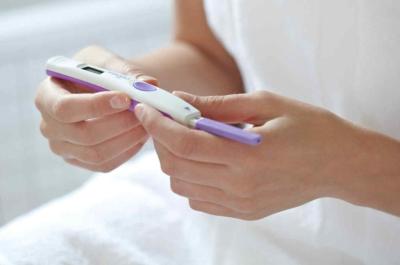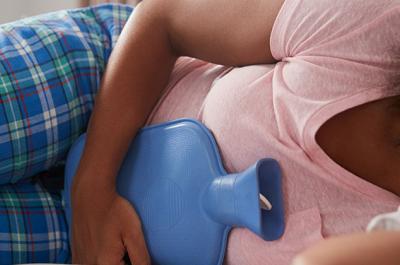
Deciding it’s time to start a family, or planning to get pregnant again? Get expert advice to help you conceive and begin a healthy pregnancy. Here is our Top 10 list of things to know:
In this article
- 1. Stop contraception
- 2. Have sex at the right time
- 3. Take folic acid
- 4. Eat healthy foods
- 5. Avoid certain foods
- 6. Stay fit and maintain a healthy body weight
- 7. Stop smoking, recreational drugs, alcohol
- 8. Get your rubella vaccination
- 9. Optimize vaginal health – use a sperm-friendly lubricant
- 10. Get your partner involved - here are some ways to help him create healthy sperm
- The bottom line
- It can take some time for your menstrual cycles to return to normal after stopping contraception.
- Timing sex based on when you ovulate will help you get pregnant faster.
- One in two couples could be trying to get pregnant at the wrong time1.
- Clearblue® Ovulation Tests can help you find the days when you are most fertile each cycle.
1. Stop contraception
With some methods of contraception, such as the male and female condom, the cap, diaphragm and natural family planning, when you stop using the contraception your menstrual cycles and your fertility will not be affected. With other methods, such as the combined contraceptive pill and contraceptive injections, it can take some time for your menstrual cycles to return to normal after stopping the contraception. Although there is no reason you can't start trying for a baby immediately, some women like to wait a few months before trying, to re-establish their natural cycles, begin taking folic acid, and prepare their body fully.
2. Have sex at the right time
Did you know that one in two couples could be trying to get pregnant at the wrong time1? There are only a few days each month when a woman can become pregnant; having sex on the day of ovulation (when your body releases an egg) or the few days leading up to ovulation will maximize your chances of becoming pregnant.
At some point, you’ve probably heard that the average cycle is 28 days long, and that ovulation occurs on day 14. Both of these numbers are just averages from reported data. In reality, most women’s cycles don’t match this “average”. Tracking with an ovulation test will help you identify your individual cycle length and date of ovulation, not just a guess.
3. Take folic acid
Taking a folic acid supplement helps prevent neural tube defects in your baby such as spina bifida. For example, in the UK the Government's Chief Medical Officer recommends that women planning to get pregnant, or women who are pregnant, take a folic acid supplement containing 400 micrograms of folic acid every day, ideally starting three months before you start trying to conceive, and throughout the 1st trimester of your pregnancy2. If you eat a healthy diet, you will already get some folic acid from foods such as fortified breakfast cereals, beans, leafy green vegetables and orange juice, but it is important to still take supplements because it is very difficult to get the required folic acid amount through diet alone.
4. Eat healthy foods
To give your baby the best start, even before conception it’s a good idea to eat regular, balanced meals, lots of fresh fruit and vegetables and cut down on processed and 'fast' food. Make sure your diet includes:
- Carbohydrates - whole grain, pasta, rice and cereals are better than white bread, cakes and cookies
- Fruit and vegetables - try to eat five portions a day, keepin mind that the more colorful the fruit or vegetable, the more nutritious it is.
- Protein - you can get the protein you need from meat, fish, eggs, lentils and beans.
- Milk and milk products - these contain lots of calcium, which is important for bone development
- Fat - try to get your fat intake from vegetable sources like olive oil, or oily fish like salmon, sardines or mackerel
5. Avoid certain foods
- Raw eggs and raw or undercooked meat or shellfish
These may contain salmonella or other organisms which can cause food poisoning - Unpasteurized dairy products, liver or liver pâté and leftovers
These foods can contain Listeria, which can lead to miscarriage or stillbirth. - Liver/liver products
These contain high levels of vitamin A, which may be harmful for a developing baby so should be avoided. - Vitamin supplements not labelled "For Use in Pregnancy"
Vitamins and other supplements should only be used if it says on the container they are safe to use in pregnancy. This is because some vitamins, if taken at high levels, are very dangerous for the developing baby. It is important to take folic acid as mentioned earlier, so either buy this as a single supplement or buy a supplement designed specifically to be used in pregnancy. - Be careful with medication
Discuss any medication you're taking with your doctor and also, make sure you speak to your doctor before stopping any prescribed medication you are taking. Let the pharmacist know you're pregnant if you need any over-the-counter medicine. Even simple remedies like decongestant nasal sprays can contain ingredients that should not be used when pregnant. - Be aware of toxoplasmosis
Unwashed vegetables, undercooked meat and cat feces carry the risk of toxoplasmosis – which can cause miscarriages, stillbirth or damage to your baby. So always wash fruit and vegetables, only eat thoroughly cooked meat and wear gloves when you're gardening or emptying cat litter trays.
6. Stay fit and maintain a healthy body weight
Pregnancy puts a lot of strain on your body so getting fit before pregnancy will help you after you conceive. If you're fit before you get pregnant, it will be easier for you to stay active when you are pregnant. Exercise can help to improve your mood and energy levels. It, also reduces stress, which is a good thing when it comes to conceiving. Being a healthy body weight can help you to get pregnant, so the best thing is to try and achieve as ideal a weight as possible before trying to get pregnant. Your doctor will be able to give you information about a healthy weight for you.
7. Stop smoking, recreational drugs, alcohol
It's best to avoid smoking, recreational drugs and alcohol while you are trying to get pregnant and throughout your pregnancy.
If you smoke or take recreational drugs then giving up will improve your chances of having a healthy pregnancy and a healthy baby.
Drinking in pregnancy can lead to long-term harm to your baby, with the more you drink the greater the risk. If you are pregnant or planning a pregnancy, the safest approach is not to drink alcohol at all, to keep risks to your baby to a minimum. If your partner smokes, drinks or takes drugs then it is also important that they cut down on these substances (and ideally, stop them altogether) while you are trying to get pregnant. Apart from the secondary effects on you, cigarettes, recreational drugs and alcohol can all have an adverse effect on the quality of sperm.
8. Get your rubella vaccination
Rubella, also known as German measles, can seriously affect unborn babies. It's a good idea to check that you're fully protected against rubella if you're planning to have a baby. Talk to your doctor about your vaccination history3.
9. Optimize vaginal health – use a sperm-friendly lubricant
Vaginal dryness is more common than we may think. In a study across 11 countries involving over 6,500 women, up to 18% of women aged 18–34 years reported always or usually experiencing vaginal dryness4. This can be worse when trying to conceive as there is a tendency to have lots of baby-making sex. Some of the most commonly available lubricants can be harmful to sperm – so be sure to use a sperm-friendly lubricant.
If you have any abnormal vaginal discharge, it is worth speaking to your doctor. Common vaginal infections, such as bacterial vaginosis or thrush, can be treated easily and make trying for a baby easier.
10. Get your partner involved - here are some ways to help him create healthy sperm
- Stay fit and healthy
Your partner should try to be as active as possible, reduce alcohol, stop smoking and eat a healthy diet. - Use sperm-friendly lubricant
Make sure any lubricant you use isn't 'spermicidal' or toxic to sperm. You can buy 'sperm-friendly' lubricants that are specially formulated. - Keep testes cool
Your partner should wear loose underwear and avoid hot baths. Consistent or prolonged 'heating' of the testes can reduce sperm quality.

Answers from our Experts
Monica Moore, founder of “Fertile Health, LLC”
I’ve recently stopped using hormonal contraception (e.g. the contraceptive pill). Will this affect the results of my ovulation test?
No, it will not affect your results. However, your cycles may be irregular and can take some time to stabilize. You may wish to wait until you have had two natural menstrual cycles and note their length before using a Clearblue® Ovulation Test.
Can certain sexual positions increase our chances of conceiving?
Monica Moore, founder of “Fertile Health, LLC”
There is no optimal sexual position in terms of increasing chance of conception. The sexual position used should be one that provides the greatest comfort and enjoyment for both partners.
Why is folic acid recommended when trying for a baby?
Monica Moore, founder of “Fertile Health, LLC”
Folic Acid is a B vitamin that is used to generate new cells in the body. Research has shown that helps to prevent neural tube defects, such as spina bifida, in the baby when taken prior to, and during, pregnancy. The recommendation by the Center for Disease Control (the CDC) is to start taking 400 µg of folic acid 1 month prior to conception and continue it during the pregnancy. If a woman has had a child affected by a neural tube defect in the past, she should speak with her doctor about increasing the preconception dose.
We are planning to try for a baby, are there any dietary supplements apart from folic acid that can help me?
Monica Moore, founder of “Fertile Health, LLC”
Eating a balanced diet and maintaining a healthy weight are incredibly important prior to conception. Any additional nutritional needs can be met by taking a daily prenatal vitamin that contains the necessary vitamins and minerals. In addition, it's important to make sure that the prenatal vitamin contains DHA, which is an essential fatty acid that is critical for brain and neurological development. Babies depend on a maternal supply of DHA (since we do not produce it, and must get it from our foods or supplements). If the prenatal vitamin doesn't contain DHA, this should be added as a separate supplement to assure proper neurological health for the baby.
Are there any foods I should avoid when trying for a baby?
Monica Moore, founder of “Fertile Health, LLC”
Some foods are not recommended when attempting pregnancy because they can contain Listeria, a bacteria that can cause an infection that can be harmful to the baby. Any cheese product containing unpasteurized milk (such as brie or feta cheese) can be a vehicle for listeria, as can prepared salads that you might find in a supermarket. Also, raw foods (such as sushi, raw oysters or clams) can contain bacteria or parasites that are also harmful and should not be ingested. Women should also avoid fish that are high in mercury, like tuna and swordfish. Any raw fruits and vegetables should be thoroughly washed as well.
We are planning to try for a baby, are there any dietary supplements that my partner should be taking?
Monica Moore, founder of “Fertile Health, LLC”
We always recommend that our patients obtain their nutrients from food, whenever possible, instead of relying on supplements. Although some studies have shown that men's sperm parameters might be improved by supplementing with a combination of certain minerals and anti-oxidants, whether or not this improvement translates into increased pregnancy rates (which is the ultimate goal) is unclear in the literature at this point. What is known, though, is that lifestyle changes, such as maintaining a healthy weight, stopping smoking or any recreational drugs, and minimizing alcohol intake can improve the quality of sperm.
As we are trying for a baby should we increase our frequency of intercourse? Can too much intercourse damage the quality or quantity of the sperm?
Monica Moore, founder of “Fertile Health, LLC”
Most clinicians advise that men with normal sperm count should increase the frequency of intercourse around the woman's fertile window (just prior to and at the time of ovulation) to increase the chance that fertilization takes place. Although an increase in intercourse can decrease the volume and total number of sperm, the level seems to remain high enough to fertilize the egg and the quality of the sperm might even be improved as opposed to longer intervals between sperm production.
The bottom line
Our infographics about the top things to know when trying to get pregnant:
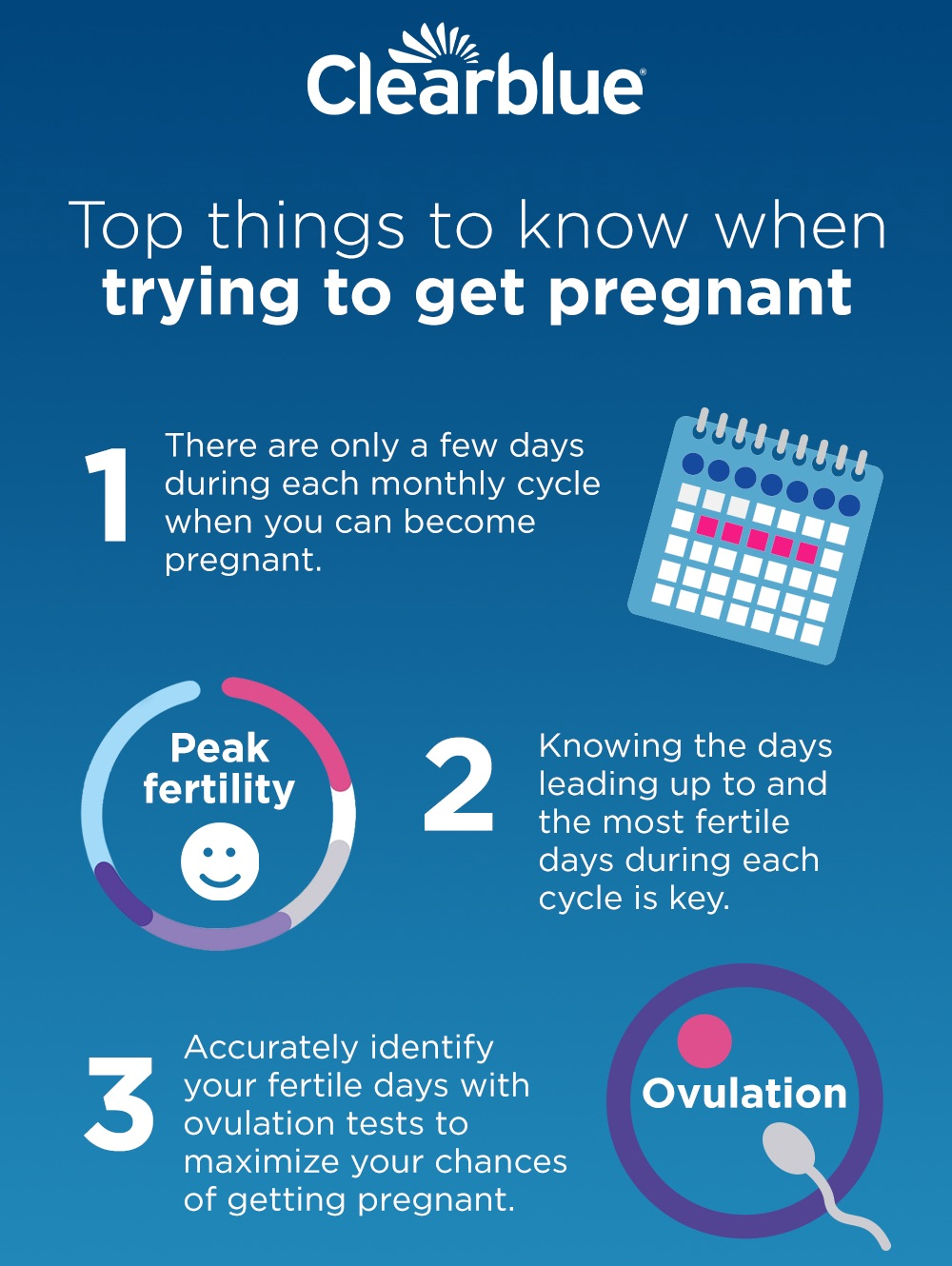
- Johnson SR., et al. Hum. Repro. (2011) 26: i236
- Leiblum SR., et al. J Sex Med. (2009) 6: 2425–2433.
- http://www.nhs.uk/Conditions/Rubella/Pages/Prevention.aspx accessed 2/5/2017
- NICE Clinical Guideline [CG62] – Antenatal care for uncomplicated pregnancies. Published March 2008. Updated January 2017.
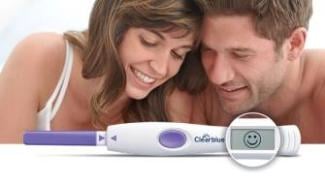
Advanced Digital Ovulation Test
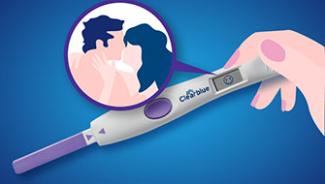
Find your most fertile days
Ovulation tests are an accurate and simple way to identify your most fertile days to maximise your chances of getting pregnant.


